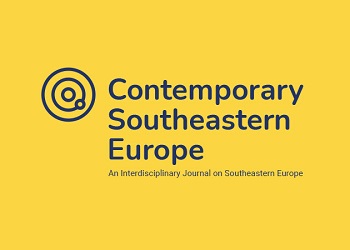Protests against the Law on Religious Freedom in Montenegro. A Challenge to the “Đukanović-System”?
Protests against the Law on Religious Freedom in Montenegro. A Challenge to the “Đukanović-System”?
Author(s): Fynn-Morten HeckertSubject(s): Political history, Government/Political systems, Politics and law, Politics and religion, Politics and society, WW II and following years (1940 - 1949), Transformation Period (1990 - 2010), Present Times (2010 - today), Inter-Ethnic Relations, Politics and Identity
Published by: Universität Graz
Keywords: Montenegro; church-protests; social movements; litije; nation-building;
Summary/Abstract: On 27 December 2019 the parliament of Montenegro passed a new Law on Religious Freedom. This law replaces an older law regarding the same topic from 1977. There is a broad consensus that the old law is outdated and needs to be revised. However, the new one is (among other aspects) mainly criticized for its articles 62-64, which refer to the ownership of holy assets. It declares that all religious sites and land currently possessed by religious communities and built from common funds of the citizens before 1918 on the territory of present- day Montenegro, shall pass into the ownership of the Montenegrin state, if religious communities cannot give evidence that they were the legal owners of the assets within one year from the promulgation of the Law. This legal norm is highly contested by the oppositional pro-Serbian Democratic Front (DF), the Serbian Orthodox Church (SOC), and its supporters, who claim that this law would take away holy places from the SOC and would be discriminatory against the Serbs in Montenegro, which manifests in regular demonstrations, blockades, and even threats of bloodshed in Montenegro if the law is implemented. There was also an incident inside the parliament where MPs of the DF rushed to the parliament speaker and stated that they would be ready to die for their church. After this, police intervened and arrested 18 MPs of the DF. Additionally, the opposition leader Andrija Mandić stated that the government would have to “count on the worst,” if the parliament would adopt that law and that he would “invite all [his] war friends from 1991 to 1999.” Although after some violent conflicts with injuries on both sides, peaceful walks and protests were announced and organized by the SOC, the situation is tense and reaches international importance as well.
Journal: Contemporary Southeastern Europe
- Issue Year: 7/2020
- Issue No: 1
- Page Range: 11-24
- Page Count: 14
- Language: English

